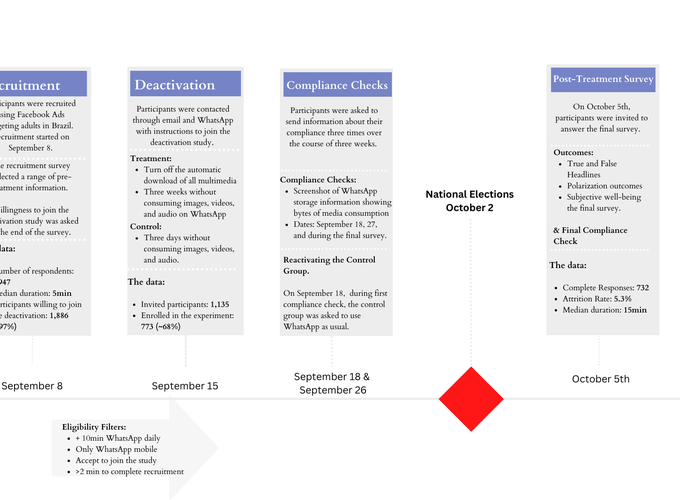WhatsApp Increases Exposure to False Rumors but has Limited Effects on Beliefs and Polarization: Evidence from a Multimedia-Constrained Deactivation.
Abstract
For years WhatsApp has been the primary social media application in many countries of the Global South. Numerous journalistic and scholarly accounts suggest that the platform has become a fertile ground for spreading misinformation and partisan content, with some going so far as to assert that WhatsApp could seriously impact electoral outcomes, episodes of violence, and vaccine hesitancy around the world. However, no studies so far have been able to show causal links between WhatsApp usage and these alleged changes in citizens’ attitudes and behaviors. To fill this gap, we conducted a field experiment that reduced users’ WhatsApp activity during weeks ahead of the most recent Brazilian Presidential election. Our field experiment randomly assigns users to a multimedia deactivation, in which participants turn off their automatic download of any multimedia - image, video, or audio - on WhatsApp and are incentivized not to access any multimedia content during the weeks leading up to the election on October 2, 2022. We find that the deactivation significantly reduced subjects’ exposure to false rumors that circulated widely during the weeks before the election. However, consistent with the minimal-effects tradition, the direct consequences of reducing exposure to misinformation on WhatsApp in the weeks before the election are limited and do not lead to significant changes in belief accuracy and political polarization. Our study expands the growing literature on the causal effects of reducing social media usage on political attitudes by focusing on the role of exposure to misinformation in the Global South.
